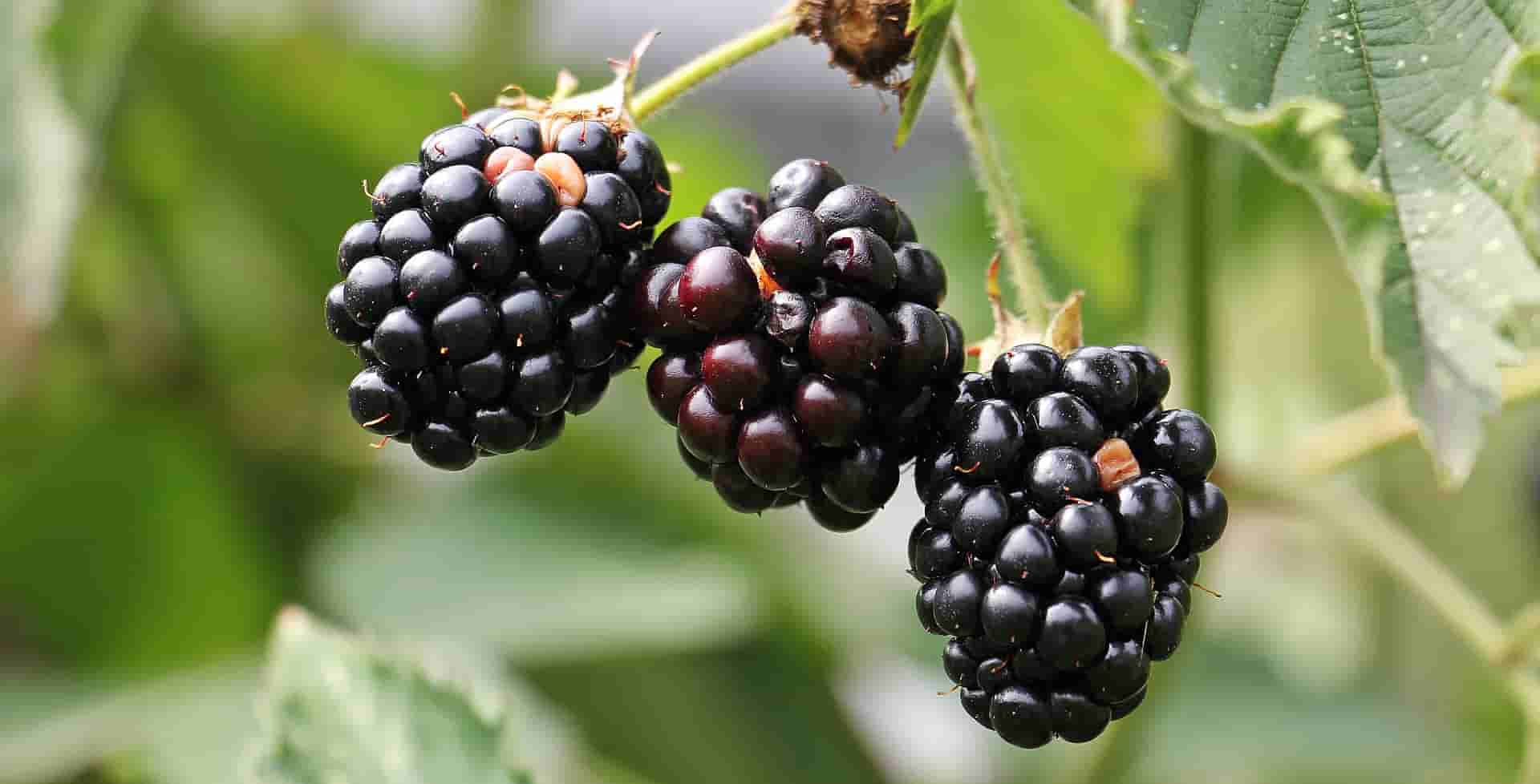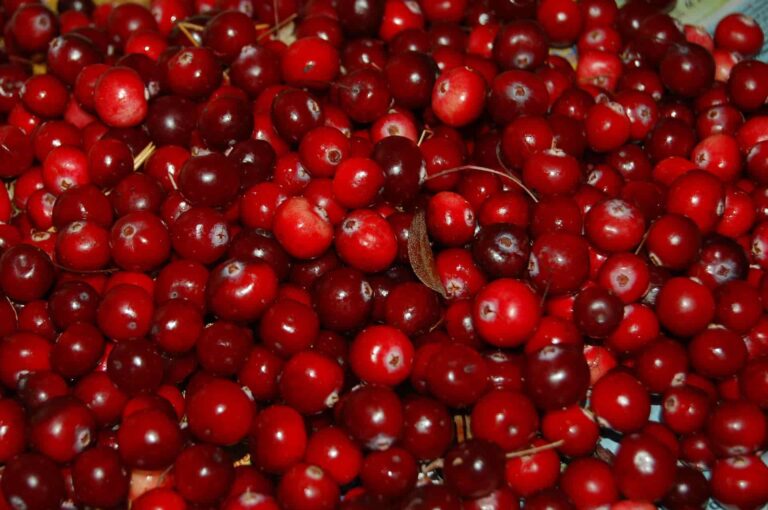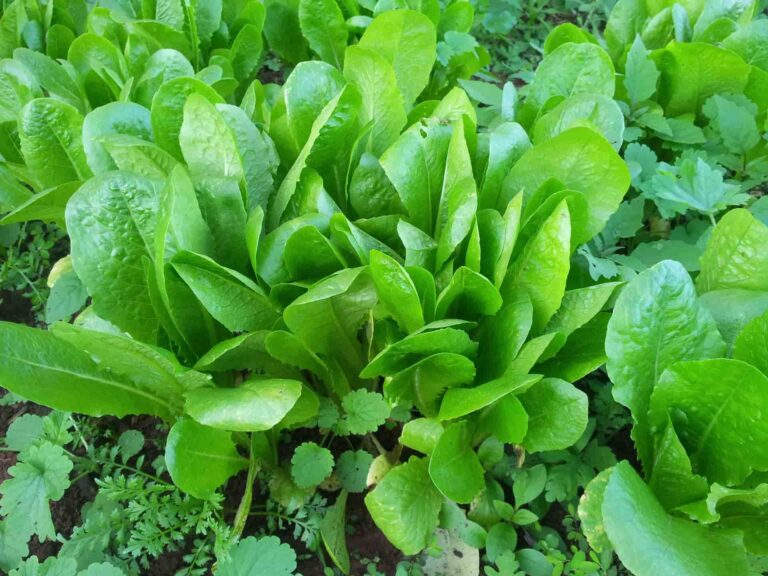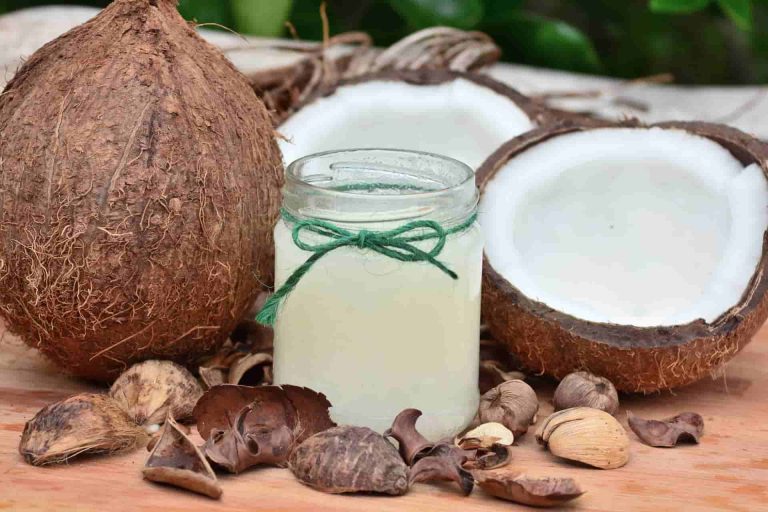Blackberries health benefits, origin, Season, Storage & durability and use
Blackberries taste fruity and aromatic and are the star in numerous sweet dishes. However, they must be eaten quickly as blackberries are extremely delicate.
Blackberry bushes belong to the rose family and are among the most sensitive types of fruit. They grow on prickly climbing plants that can reach heights of up to 3 meters. Blackberries are deep blue to black, are firmly attached to the flower base and can not only be planted in the garden, but can also be picked in forests and at the edges of the forest.
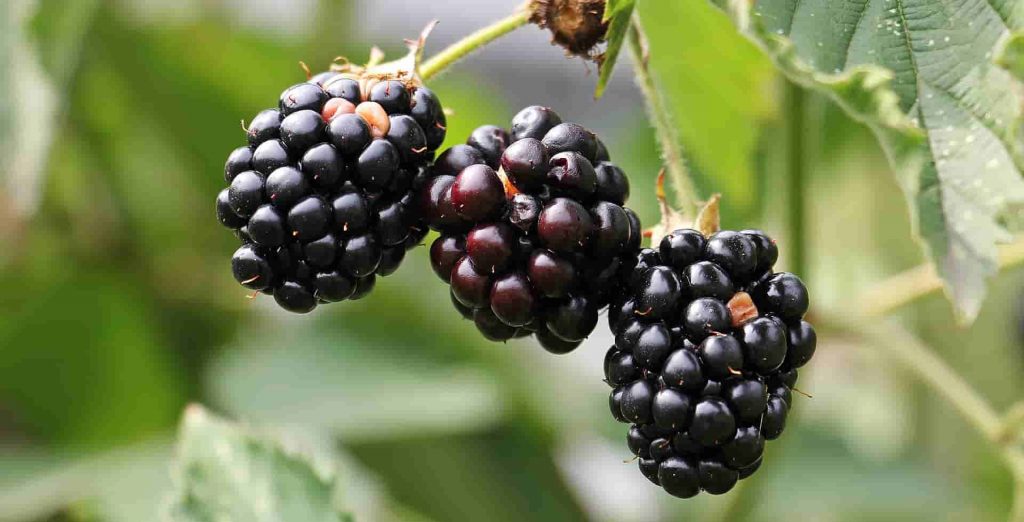
There are almost 1,500 different types of blackberries. The wild berries are usually particularly prickly, which makes harvesting not exactly fun. There are also thorn less cultivated plants to buy for your own garden.
Info: Wild blackberries are comparatively small to the high-yielding cultivars.
Origin
The roots of the blackberry are found in North America and Eurasia. Originally it was a pure forest fruit.
Even today they are preferred to be grown in numerous countries in the northern hemisphere. Numerous local berries are sold in Austria, but depending on the season, blackberries from Spain, South America and other growing countries are also represented.
Season
Domestic blackberries are offered in this country from August to October. June and July are covered by blackberries from Spain.
From December to February, South America (mostly) supplies the Austrian markets with blackberries.
They are hardly available in spring.
Taste
Blackberries are very juicy, taste particularly fruity and have a strong aroma [1] that is unique in the world of berries.
Storage & durability
Blackberries are extremely delicate and will last a maximum of 2-3 days if kept in the refrigerator. They should be spread out on a plate for refrigerator storage, as they will mold faster if squeezed.
For a longer shelf life you can use the blackberries:
- Freezing: To do this, they should first be pre-frozen on a tray or plate before they are put together in packaging. Blackberries keep for about 1 year when frozen.
- Preserving: The small fruits are particularly easy to process as jelly or jam.
Use in the kitchen
Before blackberries can be processed, they must be washed. To do this, let cool water in a bowl or in the sink and wash it in the standing water. Running water should not be used to clean the sensitive berries as it can clog them.
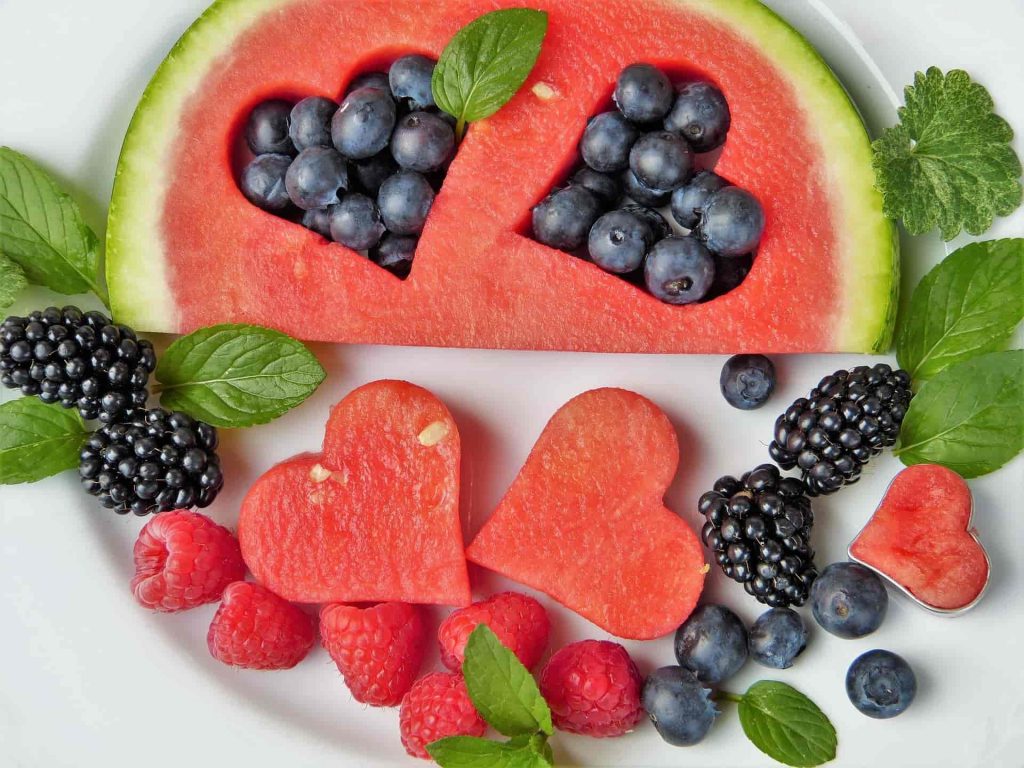
Blackberries are used wherever it should taste fruity – for example as:
- jelly
- jam
- Mus
- juice
- Fruit slats
- ice
- etc.
Blackberries go well with ice cream, yogurt and milkshakes. But they are also used in fruit cakes, summer cakes and pastries.
They can also be made into jam, compote, fruit wine, blackberry liqueur and juice.
Tip: Young, thorn-free leaves can be used in salads, cooked with vegetables or in green smoothies.
Nutritional value / active ingredients
- Blackberries contain calcium, iron, vitamins C and A, as well as carotenes and bioflavonoids.
- Blackberry leaf tea is used to lower blood sugar and cleanse the blood. It has a sweat and diuretic effect and promises relief from fever and digestive problems.
- Blackberries are very filling due to the high fiber content.
- They strengthen the connective tissue.
- The juice of the blackberry can soothe a sore throat.
Tip: For a healthy tea, add 1 tablespoon of dried, finely chopped blackberry leaves with 250 ml of hot water and let it steep for 10-14 minutes – sweeten with honey.
